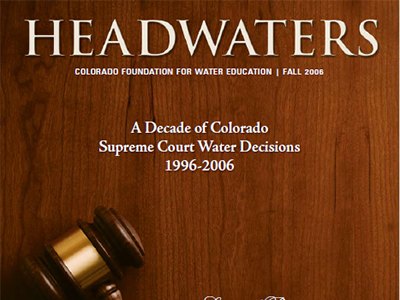Prior Appropriation
Colorado’s dry climate creates many challenges for water users, who frequently move water vast distances from its source to its area of use. These challenges made riparian law, the water law framework common in the eastern United States, impractical. Riparian law says that only those with land adjoining a stream have a right to use its water.
Colorado adopted a different system, prior appropriation, which is commonly summed up as “first in time, first in right.” This means that those with senior (older) rights receive access to water before junior (newer) rights in times of water shortage.
Colorado Doctrine: The Basis of Water Law
Colorado needed a clear system of law to identify and protect water rights, with reliable administration and enforcement of those rights, and the flexibility to allow those rights to be transferred, sold or exchanged. The Colorado Doctrine is a set of laws governing water use and land ownership, adopted by the people of Colorado starting in the 1860s. It has four major principles:
- All surface and groundwater in Colorado is a public resource for beneficial use by public agencies, private persons, and entities.
- A water right is a right to use a portion of the public’s water resource.
- Water rights owners may build facilities on the lands of others to divert, extract or move water from a stream or aquifer to its place of use.
- Water rights owners may use streams and aquifers for the transportation and storage of water.



